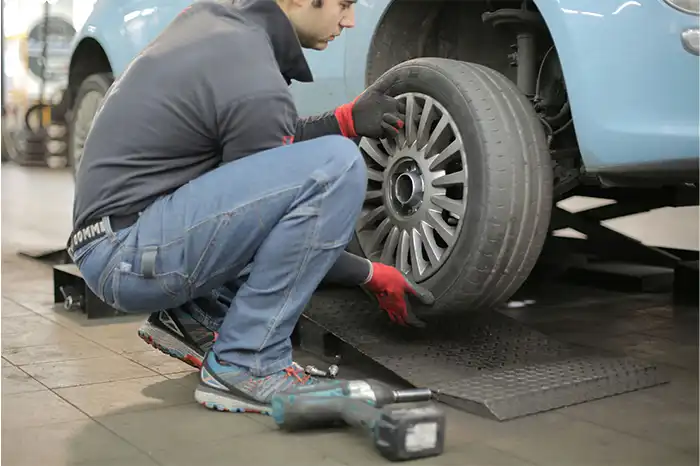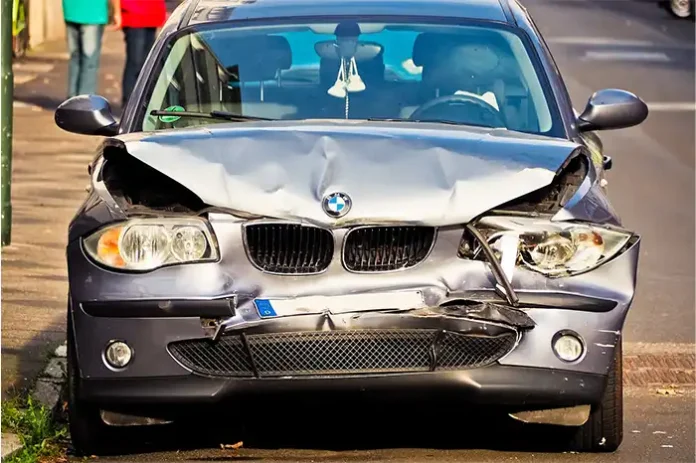In 2021, Rancho Cucamonga saw 433 injuries or fatalities from vehicle accidents, with pedestrians and bicyclists making up 15% of victims, 9% involving alcohol, and 6% affecting motorcyclists. While many accidents stem from driver error, defective car parts are an often-overlooked cause of serious crashes. Liability can extend beyond the driver when an accident is linked to faulty brakes, tires, airbags, or other vehicle components. Manufacturers, distributors, or even maintenance providers could be responsible for injuries and damages.
Proving such liability, however, requires expert analysis, detailed evidence, and a thorough understanding of product liability laws. If you or a loved one has been affected by an accident caused by defective car parts, you deserve justice. Call us today for a free consultation to discuss your case. We’ll help you identify the liable parties, gather critical evidence, and fight for the compensation you deserve.
6 Factors to Determine Who is Liable for Car Accident
1. Common Issues with Faulty Auto Components
Cars are made up of parts that are essential for safe driving performance and operation. Reliability issues can arise in any component, creating potential dangers. Typical trouble spots include brakes, airbags, tires, and steering systems. A malfunction in these crucial elements could have serious consequences, and pinpointing the exact issue usually marks the initial stage in assigning responsibility.
2. The Duty of the Manufacturer

Manufacturers have a responsibility to ensure their products meet safety requirements properly. If a problem occurs with the product, it’s usually the fault of those who made or designed the part. Negligence during manufacturing or failure to perform testing can hold a manufacturer accountable. When parts harm people, they often take action against the companies behind the product’s production.
3. The Significance of Distributors and Retailers
Manufacturers carry a level of responsibility in product safety. However, distributors and retailers are also held accountable for their role in the process. They serve as the middlemen connecting manufacturers with consumers and should they sell products lacking warnings or instructions, distributors and retailers can be held liable. It is their responsibility to guarantee that products are defect-free and safe for consumer usage.
4. Responsibilities of Car Owners

Car owners need to ensure their vehicles are well maintained to keep them running smoothly on the roadways. It’s important for owners to address any known problems or heed recall notifications to uphold their responsibility as vehicle owners. Neglecting maintenance or ignoring recall alerts could potentially lead to shared accountability if an accident occurs due to components.
5. Seeking Action for Those Who Have Been Wronged
Victims who are involved in accidents due to defective car parts have options for seeking legal action available to them. The process of pursuing a claim for product liability allows these victims to pursue compensation for the injuries and losses they have suffered. These claims rely on demonstrating that the defect was present at the time the product was manufactured and that it directly led to the accident. Legal experts frequently support victims in managing the intricacies of such matters.
6. Identifying a Faulty Component
Determining that a faulty component led to an incident necessitates an inquiry involving the gathering of evidence through expert assessment and reconstructing the accident scene. These are core elements in establishing an argumentative stance.
Read Also: All You Need to Know about Blown Head Gaskets
7. Reparation for Harm Caused

Those who seek recourse after being harmed can be compensated for losses such as medical costs and income loss due to injury or property damage following an incident of negligence or misconduct by a company or individual involved in producing the product in question.
8. Challenges in Legal Proceedings
Dealing with issues related to defective car parts can be quite a daunting task for those affected by them as it involves complexities stemming from the technical aspects of automobile parts and the requirement for expert opinions to support claims effectively. Pinpointing parties and demonstrating negligence or faults typically entails navigating through legal steps. This makes it crucial for victims to seek out seasoned legal advice to help them maneuver through this challenging process.
9. Preventive Measures and Consumer Awareness
To avoid mishaps caused by car components, it’s crucial to take steps as a consumer by keeping an eye out for recalls and diligently following the manufacturer’s maintenance recommendations for your vehicle. Being aware of defects, dealing with problems promptly, and staying informed empower consumers to safeguard their well-being and limit the chances of encountering merchandise.
Conclusion
Issues arise when faulty car components lead to accidents, as it becomes difficult to ascertain responsibility for the mishap. The various parties involved, such as manufacturers and retailers, all have a role in upholding product safety standards. For individuals affected by incidents, navigating the intricacies and seeking redress through proper avenues is essential. Consumers can safeguard themselves from dangers linked to car parts by keeping information and taking proactive measures.





